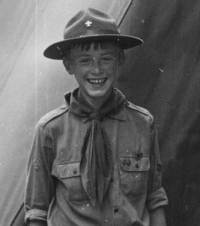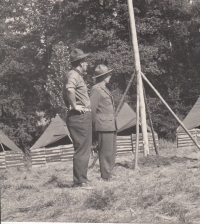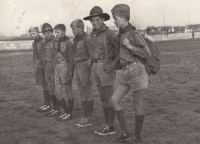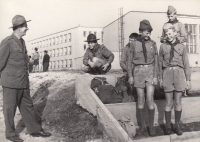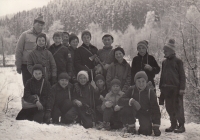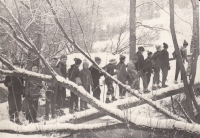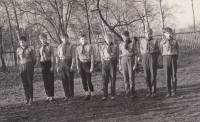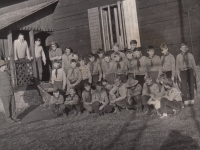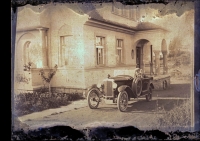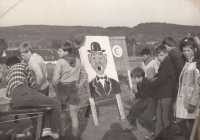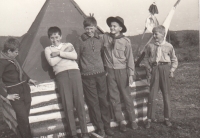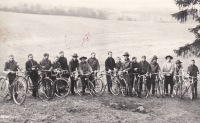Let us stand straight as an ash tree, be equal in our deeds and work!

Stáhnout obrázek
Dalibor Funda was born in Planá in the West Bohemian borderland on 23 July 1955. His father Dalibor Funda Sr was arrested and imprisoned following February 1948 and his trucking business was seized. The witness joined the renewed Jasan (Ash) boy scout centre in Planá in 1968. He was very fond of scouting, but the umbrella organisation (Junák) was officially banned again in 1970. The witness completed a grammar school and enrolled in the Czech Technical University (CTU) in Prague to study architecture in 1974. Following graduation, he considered leaving the country; he and his partner even managed to leave for the West, but his partner (future wife) refused to stay abroad, so they eventually returned. The witness took part in anti-regime protests before 1989. During the Velvet Revolution, he distributed leaflets with information about the latest developments to his native town and its surroundings. Later on, he took part in the restoration/refurbishment of the Kramář Villa and development of government facilities. In 2010, he released a book of short stories loosely inspired by his family’s chronicle, Poslední promítač ze Sudet (The Last Cinema Projector from the Sudeten). He lived alternately in Prague and Planá in 2021.
